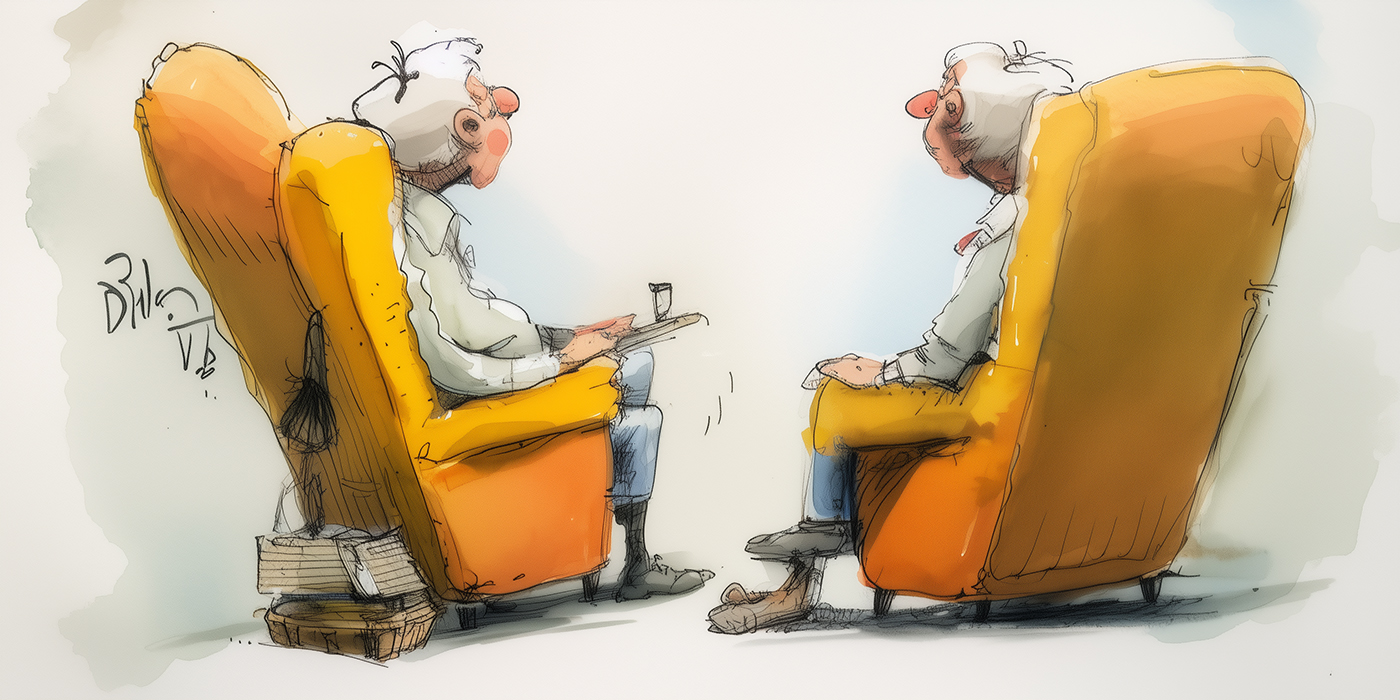In the five-plus years that SA has existed in Toronto, we have received numerous requests to be involved in radio or television programs. With careful attention to the SA position papers on media publicity, we have always declined. In January 1996, our group agreed to take part in a TV program. This decision, however, gave rise to many questions and concerns within the fellowship, which led to a review of the decision in a group conscience meeting. We would like to share with you what happened and how we resolved it.
The TV invitation came from a well-known and highly regarded news magazine program carried weekly by one of Canada’s national television networks. The program segment they wanted our help with was going to focus on “stresses” of today — various ways in which people have fallen into addictive or self-destructive life patterns and ways in which they are learning to deal with these problems and to recover. The program would, they said, touch on sexual addiction and on three or four other present-day addictions, such as gambling, workaholism, etc. Our SA group agreed that five or six of our members (who had expressed their willingness to do so) would conduct an SA meeting at an agreed-upon time. This meeting would be videotaped in such a way as to preserve personal anonymity and a few minutes would be chosen by the producers for use in the program.
Contacts with the TV people included some phone conversations and one face-to-face meeting between myself and two of the network staff. Our fellowship gave preliminary approval to the program proposal at a business meeting and final approval at a subsequent regular weekly meeting. This whole process, however, happened in the span of only five days. We were looking at what seemed to be the good reasons for doing the program, and we were trying to make a quick decision to meet the timetable of the TV people, but in so doing we unwittingly bypassed some very important principles.
Within two days of the decision being made, many questions began to surface in the fellowship. Some people were worried about the implications of the TV involvement and/or felt that they had not been included in the decision process. We were also required to stop and consider the fact that many members had not been in the fellowship during previous discussions about the media, and there was a real need to look carefully once again at the whole SA position on this question.
On the urging of a couple of members, I contacted Nashville regarding this media invitation and the International Central Office arranged for Roy K. to call me. The next day there was a mini conference call between Roy, myself and another of our members. Roy gave us some of the history with relation to SA and the media, reviewed the established policy, encouraged us to look carefully at all sides of the question, and then prayed with us on the phone and wished us well in our deliberations.
That same evening, our regular Wednesday group (with the addition of members from Monday and Saturday groups) agreed to make the meeting a group conscience meeting. It was a most amazing and wonderful meeting, a time of real listening and of coming together in mutual support. It was suggested to us that we put down on paper some of this process and share it with others in the wider fellowship, since the vexing question of how to respond to the media keeps coming up.
After completing the beginning portion of our meeting, including our personal introductions and the reading of the Steps and the Traditions, we took a few minutes to review the main points in “What’s a Group Conscience?” [from the SA Meeting Guide]. We recognized that for a controversial decision, such as this one was, we had not laid the proper groundwork. In particular,
- the group had not been well enough informed on both sides of the question;
- there had not been ample time for members to voice their opinions: we had moved too quickly;
- a majority in a business meeting had made the initial decision, but not a “substantial majority” of all the members.
In now making an honest attempt to fulfill these conditions, we recognized that we were trying to listen “to a loving God expressing Himself in our group conscience” and so we paused for a few moments in silent prayer.
We then agreed that because the date for the TV shoot was only a few days away, we must make a decision by the end of the meeting either to go ahead with the project or to cancel out; and we would limit our deliberations to 45 minutes.
After a brief review of how the TV proposal was presented and decided upon and of the SA documents concerning the media, the meeting was opened for comment from all members.
Here are some of the points and questions that members raised:
- TV is totally different from what SA is about. I’m addicted to TV. It’s full of unrealities, untruths. SA is about being honest and personal.
- If we do this program, does anyone make a profit from it? Who?
- How will the network deal with or present SA? What kind of message will it be: positive or negative? What control do we have over that?
- There have been positive presentations of 12-Step programs in the past. Last year a local Toronto TV station showed an SAA “meeting,” using actors, which was not badly done.
- Could we get the network to present SA in this way, not using real members, but actors?
- Sometimes the presentation is not good. A recent press interview of a sex addict was distorted and negative.
- We were rushed. We’re trying to meet their agenda and timing. If we’re not comfortable or ready, let’s say so.
- How do we fit into a program about “stress in the ’90s”? Sex addiction has been around for a long time, not just in the ’90s.
- If we let the network do this program, then they are spreading the word, not us. We would be entering into a situation in which we are powerless over how the program is actually done.
- Even if the TV producers edit or alter the videotape in order to hide identities, still the master tapes will exist. What guarantee do we have that they would not sometime come to light, breaking people’s anonymity.
- What say would we (or could we) have over the eventual use and distribution of the program?
- If the TV program is shown, would SA be swamped with requests and not be able to handle them? Would this cause people seeking help to be disillusioned?
- SA in Canada is still fairly new and some groups are still very small. We are part of the same fellowship. The other groups should be considered (or be involved) in the making of such a decision because it could have a big impact on them, too.
- Twelfth Step work is, above all, the sharing with another of my own story of recovery. This is what works; this is what gives me life and keeps me in sobriety and recovery.
All of this and more was shared in an atmosphere of calm and real listening. At the end of it, a vote was taken. Normally only those with 30 days or more of sobriety can vote, but in this case a “straw vote” of everyone present was called for. The vote was 16 to two against proceeding with the TV program. It was noted that all the sober members were counted in the 16 against. It was clear, in this voting, that we were deciding to withdraw only from this particular media event. We may be able to take part in some form of media coverage at some future time.
After the vote, at the request of a member, we went once more around the circle to allow each one present a final statement by way of closure. There were many expressions of gratitude for the group and its ability to work so well together on a difficult issue, without any anger and in a spirit of harmony. It was generally agreed that this was one of the best meetings we have ever had and that we felt drawn much closer together into a sense of responsibility for our fellowship and for SA.
What was amazing to us was that so many of the points raised coincided so closely with many of the positions presented in previous SA documents on the media, even though most of those present had never actually read those documents. To the casual observer, and even to ourselves in hindsight, the errors in our original decision-making are obvious. However, there were some elements which seemed very convincing to us at the outset: the desire to reach out to those suffering; a concern that there be a wider public awareness of this problem of sex addiction; and the positive reputation of this particular TV documentary program.
As a footnote, when I phoned back the TV people to withdraw our agreement to participate, I was greeted with urgent appeals to let them meet and talk with us further to answer our questions and strong assurances that our anonymity would be fully protected. They seemed to have trouble understanding the notion of “trusted servants” who “do not govern.”
One thing that slipped out casually in this conversation was that the producers had been deliberately trying to move quickly with us because they found in the past that groups like ours often change their minds if given too much time to think about it. Very interesting! All the more reason for any of us to move very slowly and cautiously in relation to the media, always taking care to stay anchored in serenity, recovery, and the will of God as revealed in our group conscience.
Brian H., SA Intergroup, Toronto






